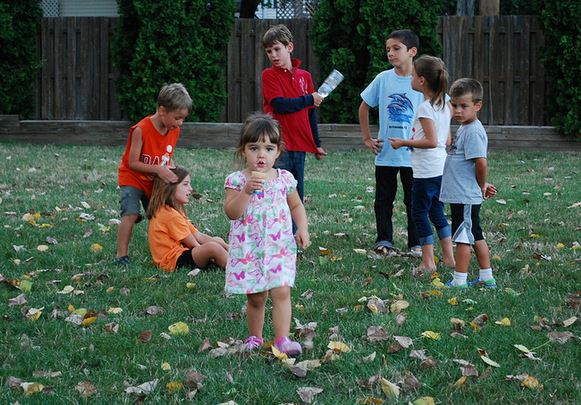How Banning Homework Might Help Kids Learn

By:
Everyone from teachers to students complains about homework, but a public school in New York City is facing backlash for doing away with it altogether. After spending more than a year researching the impact of traditional take-home assignments on students, P.S. 116 has halted the distribution of homework and decided to encourage play and family time instead.
“The topic of homework has received a lot of attention lately, and the negative effects of homework have been well established,” Principal Jane Hsu wrote to parents in January, according to DNAinfo New York. "They include: children’s frustration and exhaustion, lack of time for other activities and family time and, sadly for many, loss of interest in learning."
Hsu explained that the school looked into many different studies and couldn't establish a connection between traditional homework and overall success. While the no-homework shift might seem like a dream come true to young kids, Hsu also suggested keeping TV, video game, and computer time to a minimum, so the school isn't trying to replace homework with screen time by any means.
How parents are responding.
P.S. 116 moms and dads are unhappy with the school's decision to do away with homework. The general consensus is that children can grow from the structure of daily assignments.
“They didn’t have much to begin with, but now homework is obsolete," Daniel Tasman, whose daughter is in second grade at P.S. 116, told DNA Info. "They’ve decided that giving homework to younger ages [elementary school students] isn’t viable. I don’t necessarily agree. I think they should have homework — some of it is about discipline. I want [my child] to have fun, but I also want her to be working towards a goal."
Tasman is on the lookout for another school, and another father responded to the change by creating homework assignments for his son.
Why more play and less-structured time are good for elementary school students.
It's nice to see parents trying to set their offspring up for success, but Hsu's attempt at "redefining the landscape of homework" could be a move in the right direction. Last year, the University of Colorado-Boulder released a study illustrating the benefits of less-structured activities on children's executive function, which is the management of different cognitive abilities. The researchers observed 70 6-year-olds and concluded that those with more play time demonstrated higher levels of self-directed executive function. The children who spent more time doing structured activities, which were streamlined by adults, showed less self-directed control.
Lotzman Katzman/Flickr
Boston College psychology professor Peter Gray believes in the power of independent play time for kids. In his book "Free to Learn: Why Unleashing the Instinct to Play Will Make Our Children Happier, More Self-Reliant, and Better Students for Life," he discusses the ways play time can prepare children for grown up experiences.
"Free play is nature’s means of teaching children that they are not helpless. In play, away from adults, children really do have control and can practice asserting it. In free play, children learn to make their own decisions, solve their own problems, create and abide by rules, and get along with others as equals rather than as obedient or rebellious subordinates," Gray wrote.
Breaks between assignments have also been shown to help young ones learn. According to a 2012 statement from the American Academy of Pediatrics (AAP), recess presents children with the opportunity to grow socially and academically.
"Children need to have downtime between complex cognitive challenges,” Dr. Robert Murray, a pediatrician and Ohio State University professor of human nutrition, said in the statement. "They tend to be less able to process information the longer they are held to a task. It’s not enough to just switch from math to English. You actually have to take a break."
By Murray's logic, if a kid comes home after a long day at school and dives right back into worksheets, the learning experience won't be effective.
While homework teaches children the importance of finishing tasks and meeting the expectations of superiors, there could be better ways for young children to learn. Play time gives them a chance to have rich social interactions with peers and deal with everything from conflict resolution (disputes in the sandbox) to risk-taking (climbing up slides and playing tag). Not everyone will play nice everyday, so the outcome may be negative sometimes, but children might be able to gain more from these real-life experiences than homework packets.

